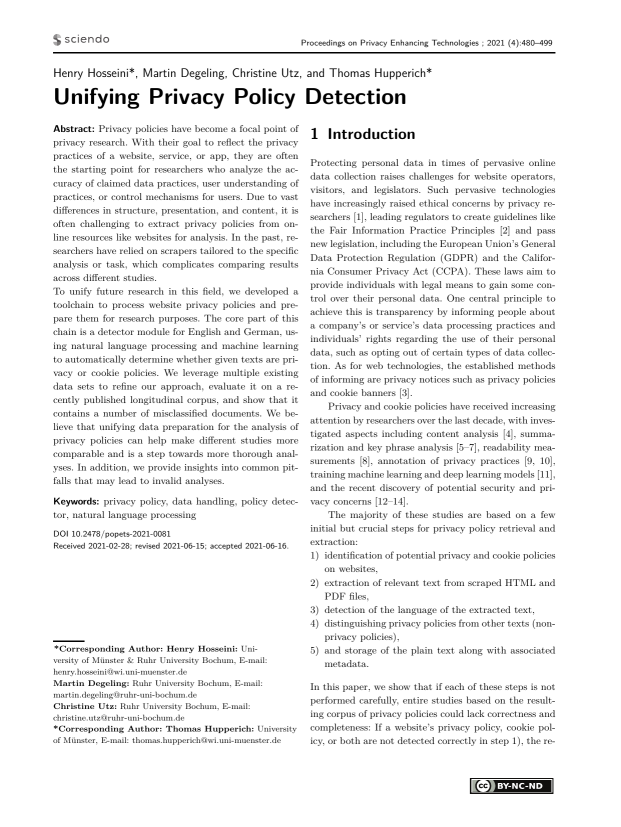Unifying Privacy Policy Detection
Authors: Henry Hosseini (University of Münster & Ruhr University Bochum), Martin Degeling (Ruhr University Bochum), Christine Utz (Ruhr University Bochum), Thomas Hupperich (University of Münster)
Volume: 2021
Issue: 4
Pages: 480–499
DOI: https://doi.org/10.2478/popets-2021-0081
Abstract: Privacy policies have become a focal point of privacy research. With their goal to reflect the privacy practices of a website, service, or app, they are often the starting point for researchers who analyze the accuracy of claimed data practices, user understanding of practices, or control mechanisms for users. Due to vast differences in structure, presentation, and content, it is often challenging to extract privacy policies from online resources like websites for analysis. In the past, researchers have relied on scrapers tailored to the specific analysis or task, which complicates comparing results across different studies. To unify future research in this field, we developed a toolchain to process website privacy policies and prepare them for research purposes. The core part of this chain is a detector module for English and German, using natural language processing and machine learning to automatically determine whether given texts are privacy or cookie policies. We leverage multiple existing data sets to refine our approach, evaluate it on a recently published longitudinal corpus, and show that it contains a number of misclassified documents. We believe that unifying data preparation for the analysis of privacy policies can help make different studies more comparable and is a step towards more thorough analyses. In addition, we provide insights into common pitfalls that may lead to invalid analyses.
Keywords: privacy policy, data handling, policy detector, natural language processing
Copyright in PoPETs articles are held by their authors. This article is published under a Creative Commons Attribution-NonCommercial-NoDerivs 3.0 license.

